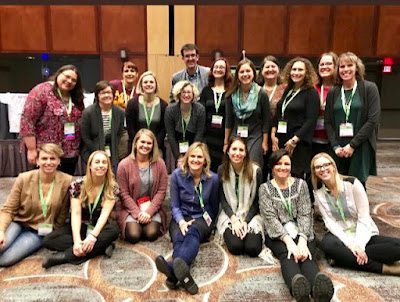Sharing Control with High School Readers
 |
| Captivated by Kwame Alexander's The Crossover |
When I talk about independent reading in my classroom, one
question that comes up a lot is, “Have you read everything your students are
reading?” The answer is a resounding
no. The follow up always comes: “Then
how do you know they’re really reading and understanding their books?” Since “Oh, I just know” doesn't seem very
professional, I decided I needed to write a post about this topic, which of
course forces me to really think through the question.
When I was a brand new teacher teaching in a private school
in Tampa, I remember wanting desperately to feel like a real teacher. I wanted the more experienced teachers and
administration to take me seriously, like I knew something and was a real
adult; I wanted my students to see me as a real teacher, not a
fresh-out-of-college kid; and I wanted parents to accept that I did know
something about education and that I was teaching their child valuable
things. Most of all, I
wanted to feel like a real teacher, so I felt I needed to be the expert, the
professional, the one-who-knows. I had
to be a step ahead of the kids, to be able to answer all their questions, to
have every lesson planned so thoroughly that nothing was out of my
control. That, after all, is what good
teachers do, or so I thought.
This lasted about two years, and I was exhausted. Never allowing yourself to be wrong or not
know something wears you out. It also
steals the joy of learning along side your students. Authentic inquiry and conversation disappears
when the teacher has to know all the answers.
So, I gave up both my first job and that mentality. I left the world of private school teaching,
and with it I left the idea that I had to be the authority figure in the
classroom. Armed with less than 50
books, I headed into my first public school teaching job ready to share the
power with my students. Over the next 15
years, that’s exactly what happened. I
built an ever-growing classroom library; kids chose their books and read, and I learned
how to have a classroom where everyone was an expert. I conferred, asked a lot of questions, read
lots of student summaries and reflections on books, and read TONS of
books. I learned to read body language,
eye contact, and voice. My “How’s it
going?” question in conferences lead to so much insight. “Um” is a dead give away (This is not going
well!); excited chatter that I have to pry myself away from while the kid is still
talking signals genuine passion and understanding. We also kept a notebook (in various forms over
the years) where there were weekly to bi-monthly responses about what kids were
reading. The writing also told me a lot
– who was processing their books and how – were they just summarizing at a
literal level? Was there evidence of deeper
thinking or passion?
Then, three years ago when I moved to high school, that old
uncertain feeling crept back in. I MUST
BE THE AUTHORITY. I MUST BE TAKEN
SERIOUSLY. I MUST KNOW EVERYTHING. Luckily that feeling only hung around for half
a year this time before I kicked it to the curb. Out with the whole class novels, back to
trusting that independent reading was best for my students. I have had to read a lot (and that will never
end!) over the past few years. Luckily,
now I can get online and check out websites with overviews when I need to see quickly
what a book is about. But mostly, I just
do what I’ve always done – I talk with my students, I listen intently to what
they say to me and in their conversations with others, and I read their words
in their notebooks.
The relationships I have with my students is based on trust
and allowing myself not to be the expert all the time (yes, I’m still working
on that in some areas – see my post about talk!). They recommend books to me and I recommend
books to them. We work out confusions
together (like multiple narratives or the time structure of a novel – like in
Gail Giles’ What Happened to Cass
McBride) because my students also know it’s ok not to know everything;
we’ll learn it together.
I think the fact that I don’t know all the books the kids
are reading has created an environment of true inquiry and authentic
learning. They’re not trying to figure
out what I already know about a book, or to guess what I believe is important. My students are trying to figure out what
they know about the book and what they think is important. Do I nudge them, challenge them, push
them? Yes I do – daily. But because it’s in a book they’re personally
invested in, they take the challenge and run.
The energy created by me not knowing all the books is
real. It allows kids to step up and be
readers, thinkers, and owners of knowledge.
Yes, it’s a risk. Yes, I must set
aside my need to control everything. But
it is so worth it.



Comments
Post a Comment